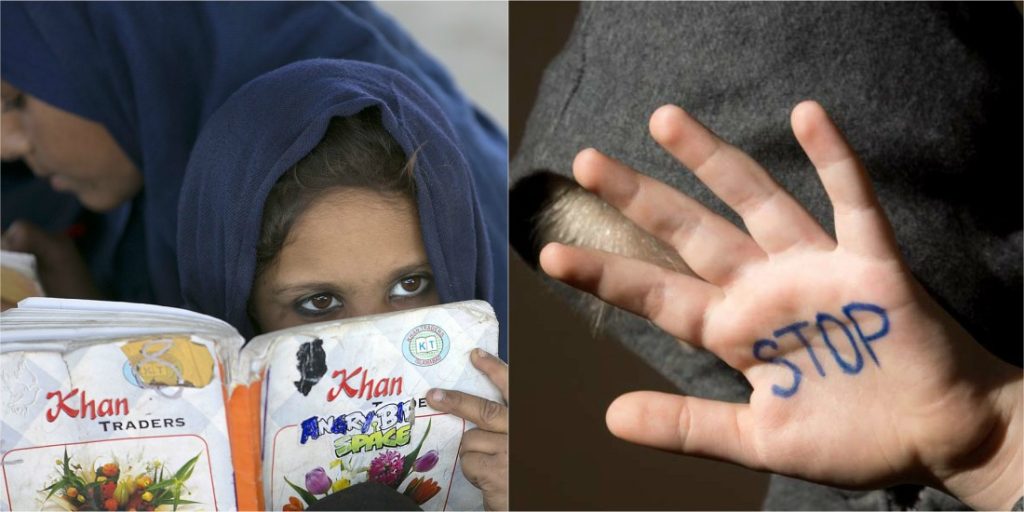Disclaimer*: The articles shared under 'Your Voice' section are sent to us by contributors and we neither confirm nor deny the authenticity of any facts stated below. Parhlo News will not be liable for any false, inaccurate, inappropriate or incomplete information presented on the website. Read our disclaimer.
This post is also available in: العربية (Arabic) اردو (Urdu)
Recently, a lot of debate has started about how do we educate our children to keep themselves secure and how to prevent abuse especially after the very unfortunate incidents of Zainab and Asma.
The first thing that should be implemented all across the country in all schools is the incorporation of sex education in Pakistan in the syllabus. It can be understood that a lot of people have an issue with this word so we can change it by calling it body education, just like we change so many things to satiate the requirements of the people living in this hypocrite world.
We can include stories in the syllabus where children can learn from the experiences that the protagonists in those stories go through and become more aware and, consequently, stronger!
See the complete video here:
Secondly, we need to categorically focus on providing sex-ed in our homes by telling our children private zones, about where anyone can kiss or touch them, like on the forehead or on the cheeks, but a stranger is not supposed to touch them without any reason. In fact, they should be told that even the close relatives are not allowed to touch them too much or inappropriately.
Every child is aware of good touch or bad touch. You, as parents or siblings, need to make them aware of it. You should teach them to scream and run away whenever they’re anticipating anything that is morally inappropriate. Lastly, we need to develop an extremely friendly relation with our children where they don’t shy away from expressing their feelings.


